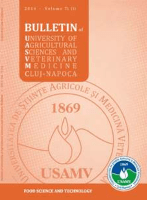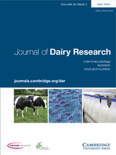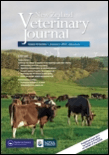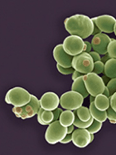
Mljekarstvo
Scope & Guideline
Innovating Practices in Animal and Food Science
Introduction
Aims and Scopes
- Dairy Production and Quality Control:
Research on the production processes of various types of milk and dairy products, including factors affecting yield, composition, and quality. This includes studies on genetic variants influencing milk properties and the impact of different production methods. - Microbiology and Fermentation:
Exploration of microbial communities in dairy products, focusing on probiotic strains, fermentation processes, and the effects of microbial activity on product quality and safety. - Nutritional Aspects and Health Effects:
Investigation of the nutritional profiles of dairy products and their health implications, including studies on fatty acids, bioactive compounds, and the impact of dairy consumption on human health. - Innovative Dairy Products Development:
Development and characterization of novel dairy products, emphasizing functional ingredients, health benefits, and sensory properties, as well as the use of alternative sources such as plant-based supplements. - Environmental and Economic Sustainability:
Research addressing the sustainability of dairy production, including economic analyses of dairy farms, the impact of dietary practices on environmental factors, and strategies for improving efficiency in dairy farming.
Trending and Emerging
- Functional Dairy Products:
There is a notable increase in research focused on functional dairy products, including probiotic yoghurts and cheese fortified with health-promoting ingredients, indicating a growing consumer demand for health-oriented products. - Impact of Diet on Milk Quality:
Studies examining how dietary interventions affect milk composition and quality are trending. This reflects a broader interest in understanding the link between animal nutrition and the nutritional value of dairy products. - Microbial Safety and Quality Assurance:
An increasing focus on microbial safety, particularly regarding pathogenic bacteria in milk and dairy products, highlights the importance of food safety in dairy research. - Sustainable Dairy Practices:
Research exploring sustainable practices in dairy farming, including the use of alternative feed sources and environmental impacts, is on the rise, driven by global sustainability concerns. - Health Benefits of Dairy Consumption:
Emerging studies are increasingly linking dairy consumption to various health benefits, including metabolic health and chronic disease prevention, reflecting a trend towards integrating health science with dairy research.
Declining or Waning
- Traditional Dairy Processing Techniques:
There appears to be a decreasing focus on traditional dairying methods and the associated microbiological studies, possibly due to a shift towards more innovative and industrialized processes. - Animal Welfare Studies:
Although animal welfare is still an important topic, the frequency of related studies has diminished, suggesting a potential shift in research emphasis towards production efficiency and economic aspects. - Basic Chemical Analysis of Milk Components:
Research concentrating solely on the chemical composition of milk without linking it to health benefits, processing methods, or production efficiency has become less prominent, as current trends favor more integrated studies.
Similar Journals

Bulletin of University of Agricultural Sciences and Veterinary Medicine Cluj-Napoca-Food Science and Technology
Exploring Innovations in Food Safety and QualityBulletin of University of Agricultural Sciences and Veterinary Medicine Cluj-Napoca - Food Science and Technology is a prominent peer-reviewed journal dedicated to advancing the field of food science and technology. Published by the University of Agricultural Sciences and Veterinary Medicine Cluj-Napoca, this open-access journal has been serving the academic community since 2013, promoting the dissemination of high-quality research that addresses pressing issues in food safety, quality, and innovation. With its ISSN 2344-2344 and E-ISSN 2344-5300, the journal aims to bridge the gap between academia and industry by providing a platform for scholars and practitioners to share their findings, insights, and methodologies. Situated in the heart of Romania, the journal reflects the country's rich agricultural heritage and its commitment to enhancing global food systems. By maintaining a rigorous editorial standard, the Bulletin ensures that it remains a vital resource for researchers, industry professionals, and students who are keen to explore the latest developments in food science.

FOOD TECHNOLOGY AND BIOTECHNOLOGY
Advancing the Future of Food Science and BiotechnologyFOOD TECHNOLOGY AND BIOTECHNOLOGY is a distinguished peer-reviewed journal published by the Faculty of Food Technology and Biotechnology, University of Zagreb, Croatia. Since its inception in 1993, this Open Access journal has become a crucial platform for disseminating innovative research in the fields of food science, biotechnology, and chemical engineering. With a commendable impact factor and consistent Q2 and Q3 rankings across multiple categories—including Biotechnology, Food Science, and Industrial Engineering—this journal not only fosters academic discussions but also addresses real-world challenges in food production, safety, and sustainability. As it converges its thematic scope from 1996 to 2024, FOOD TECHNOLOGY AND BIOTECHNOLOGY remains committed to advancing knowledge through high-quality research and interdisciplinary collaboration, making it an essential resource for researchers, professionals, and students seeking to stay at the forefront of food innovation and biotechnology.

JOURNAL OF DAIRY RESEARCH
Fostering Excellence in Dairy Research and DevelopmentJOURNAL OF DAIRY RESEARCH, published by Cambridge University Press, is a prestigious scholarly journal dedicated to the vital field of dairy science. With a longstanding tradition since its inception in 1929, the journal has emerged as a significant platform for research and advancements in the science of dairy production, processing, and nutrition, contributing to the growth of the industry and public health. This journal holds commendable Q2 rankings in Animal Science and Zoology, Food Science, and Medicine categories, underscoring its influential role in disseminating high-quality research. Researchers will find it particularly appealing due to its rigorous peer-review process and the commitment to publish groundbreaking studies, making it a must-read for academics and professionals alike. Although it is not an open-access journal, readers can access its impactful articles through institutional subscriptions or personal subscriptions to enhance their knowledge in the field. With its rich history and important contributions, the JOURNAL OF DAIRY RESEARCH remains a cornerstone resource for those involved in dairy research and related disciplines.

Food Science of Animal Resources
Exploring Sustainable Solutions for Global Food SafetyFood Science of Animal Resources is a prestigious, peer-reviewed journal published by the Korean Society of Food Science and Animal Resources, serving as a vital platform for disseminating advanced research in the fields of Animal Science and Food Science. Since its inception in 2018, the journal has quickly established itself with an impressive Q1 ranking in both categories for 2023, indicating its relevance and influence in the academic community—evident by its ranking of #23 in Animal Science and Zoology and #78 in Food Science among thousands of journals. Operating on an Open Access model since 2019, it enables unrestricted access to cutting-edge research for a global audience, facilitating collaboration and innovation. Its commitment to quality and rigor makes it an essential resource for researchers, professionals, and students dedicated to advancing knowledge in food safety, nutrition, and sustainable practices within the animal resource sector. Set against the vibrant backdrop of South Korea, the journal aims to bridge gaps in knowledge and foster communication among scholars and practitioners worldwide.

CZECH JOURNAL OF FOOD SCIENCES
Pioneering Research for a Sustainable Food FutureCzech Journal of Food Sciences is a premier publication in the field of food science, disseminating vital research since its inception in 1999 and transitioning to Open Access in 2007. Published by the Czech Academy Agricultural Sciences, this journal facilitates the exchange of knowledge among researchers, professionals, and students dedicated to advancing the understanding of food systems, safety, and technology. With an ISSN of 1212-1800 and an E-ISSN of 1805-9317, it holds a respectable position with a Q3 ranking in the Food Science category for 2023, illustrating its commitment to high-quality research despite its Scopus rank of 209 out of 389, situated in the 46th percentile. Located in the heart of the Czech Republic, at TESNOV 17, PRAGUE 117 05, this journal serves as an essential resource for those involved in agricultural and biological sciences, paving the way for innovative discoveries and applications in food science.

INDIAN JOURNAL OF DAIRY SCIENCE
Fostering Collaboration for Dairy AdvancementINDIAN JOURNAL OF DAIRY SCIENCE, published by the INDIAN DAIRY ASSOCIATION, is a premier journal dedicated to the dissemination of cutting-edge research in the field of dairy science. With a notable ISSN of 0019-5146 and an E-ISSN of 2454-2172, this journal serves as a vital resource for researchers, professionals, and students aiming to deepen their understanding of dairy science and technology. While the journal currently does not offer open access, it provides a comprehensive platform for significant scientific advancements related to dairy production, processing, nutrition, and management, among other crucial topics. Recognizing the importance of dairy in food security and economic development, the INDIAN JOURNAL OF DAIRY SCIENCE encourages innovative research and discussions that address current challenges in the industry. By fostering collaboration among scientists and practitioners, it plays a crucial role in enhancing dairy practices and policies in India and beyond.

FOOD SCIENCE AND BIOTECHNOLOGY
Innovative Insights for a Healthier TomorrowFOOD SCIENCE AND BIOTECHNOLOGY, published by the Korean Society of Food Science & Technology (KOSFOST), stands as a prominent peer-reviewed journal dedicated to advancing knowledge in the fields of food science, biotechnology, and applied microbiology. With ISSN 1226-7708 and E-ISSN 2092-6456, this journal serves as a pivotal platform for disseminating high-impact research from South Korea and beyond, reflecting a robust Q2 ranking in multiple categories including Applied Microbiology and Biotechnology, Biotechnology, and Food Science as of 2023. The journal's influence is further emphasized by its positions in various Scopus ranks, where it showcases a commendable percentile ranking in Agricultural and Biological Sciences and Biochemistry. Although access options remain limited, the journal’s objectives revolve around the publication of innovative research, fostering interdisciplinary collaboration, and facilitating the exchange of ideas among a diverse community of researchers, professionals, and students. Whether you are involved in food technology, microbial biotechnology, or nutritional sciences, FOOD SCIENCE AND BIOTECHNOLOGY are instrumental in shaping the future of these critical fields, propelling advancements that enrich our understanding of food systems and health.

NEW ZEALAND VETERINARY JOURNAL
Advancing animal health through rigorous research.NEW ZEALAND VETERINARY JOURNAL, published by Taylor & Francis Ltd, stands as a pivotal platform in the realm of veterinary science, contributing significantly to the global discourse on animal health and welfare since its inception in 1952. With an ISSN of 0048-0169 and an E-ISSN of 1176-0710, this journal offers invaluable insights within both the veterinary and general medical fields, currently achieving a commendable Q2 ranking in Veterinary (miscellaneous) and Q3 in Medicine (miscellaneous) for 2023. Its Scopus ranking places it in the 76th percentile among veterinary journals, affirming its high-impact presence in academia. While access to this journal is not open, it maintains an essential role for researchers, professionals, and students aiming to advance their knowledge and contribute to the field of veterinary science. With a commitment to disseminating quality research, NEW ZEALAND VETERINARY JOURNAL enriches the understanding of veterinary practices and enhances ongoing dialogue on critical health issues affecting animals, promoting better outcomes through scientific inquiry.

Applied Animal Science
Connecting Scholars to Cutting-Edge DiscoveriesApplied Animal Science, published by Elsevier Science Inc, is an esteemed journal that has quickly made its mark in the fields of Animal Science and Food Science since its inception in 2019. With an ISSN of 2590-2873 and an E-ISSN of 2590-2865, this journal has received commendable recognition, achieving a Q2 ranking in both categories as of 2023. Encompassing a broad scope that integrates cutting-edge research and practical applications, Applied Animal Science seeks to disseminate knowledge that advances the well-being of animal systems and food safety. Researchers and professionals in the agricultural and biological sciences benefit from its high-quality articles, which are ranked #152 out of 490 and #200 out of 389 in their respective fields according to Scopus rankings. While currently not open access, the journal remains accessible to a global audience of scholars eager to explore innovative findings and robust methodologies. As it continues to grow through 2024 and beyond, Applied Animal Science aims to be a pivotal platform for fostering knowledge exchange and inspiring future studies in its domain.

Annual Review of Food Science and Technology
Elevating Knowledge in Food Science and TechnologyThe Annual Review of Food Science and Technology, published by ANNUAL REVIEWS, is an esteemed journal dedicated to advancing the knowledge within the field of food science. With an impressive Q1 ranking in the Food Science category, and ranking as #6 out of 389 in the Scopus Agricultural and Biological Sciences category, the journal serves as a vital resource for researchers, professionals, and students. This publication encapsulates comprehensive reviews and cutting-edge research, helping to bridge the gap between research and practical application. Though it does not offer Open Access, it provides valuable insights into various aspects of food science from 2010 to 2024, ensuring that its readership stays at the forefront of emerging trends and innovations. The journal's focus on high-quality, peer-reviewed articles makes it a critical platform for scholars looking to deepen their understanding and contribute to this rapidly evolving field.